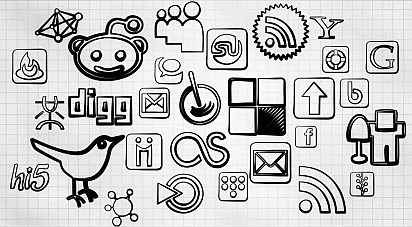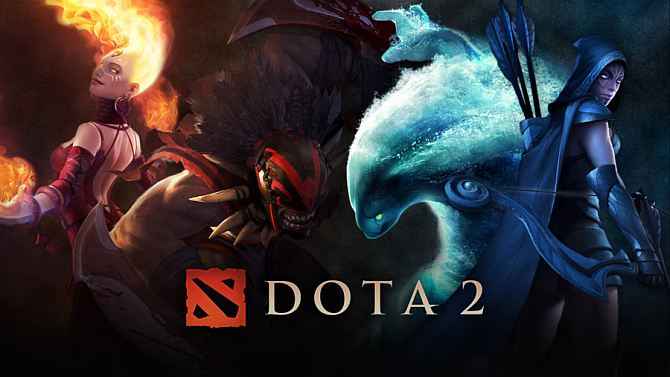2013: Looking beyond gadgets

In 2013, the big tech stories will not be limited to mere gadget launches and will have a much wider scope. We look at how concepts like social media, Internet connectivity and Internet freedom, among others, will evolve in the new year.
Whenever a new year rolls around, it’s customary for a story such as this that attempts to prophesize what is going to happen in the next 365 days. While we do think 2013 will be an exciting year to be a connoisseur of all things tech, we do think that most of it will be evolutionary, rather than revolutionary, especially when it concerns India.
We believe that topics like the personal cloud, Internet connectivity, social media for more than social networking and free-to-play gaming, among others, will generate the most amount of buzz. And here’s why we think that:
1. Social Media: More Than Just Social Networking
2012 was the year social media blew up into something entirely more than pokes, LOLs and meme retweets. The U.S. Elections were vigorously fought on social networks and even something as serious as the recent Israel, Palestine flare-up saw officials from both sides pick a fight on Twitter.
In India, the massive scope of social media led to the popularity of the Anti-corruption movement, starring Anna Hazare and Arvind Kejriwal. Kejriwal also liberally used Twitter to level corruption allegations against politicians. Even politicians like Narendra Modi and Manmohan Singh could be found regularly posting updates on Twitter and Facebook, proving that from now on social media will be an inseparable part of political campaigning and the way politicians converse with a part of the electorate.
With elections due in 2014, this year is sure to see intense social media campaigning as both the incumbent officials and those seeking power will scramble to mobilize supporters and get their voices heard through social media.
Social media also played an important part in getting the word out about ethnic clashes in Assam. However, the dark side of the all-pervasive nature of social media made its presence known when Facebook, in particular, was used to spread rumours that led to panic among the North-Eastern populace in Bangalore.
With both the individual and the news media heavily connected to social media, in 2013 we can expect news events getting highlighted through social networks rather than traditional means. Unfortunately, this also means that inflammatory content that could lead to panic/violence will most likely be more prevalent.
Do you think social media will have a more intrinsic role to play in our lives in 2013? Will you use social media to participate in serious discourse in the new year? Tell us in the comments section below.
2. The Rise of the Personal Cloud
IT enterprises have been throwing their weight behind cloud computing for a while now. It was only a matter of time for the Cloud to be wholly adopted by end-users too. 2012 saw the cloud make a big splash thanks to the massive popularity of smartphones and tablets and the presence of multiple cloud services such as Dropbox, Google Drive, Sky Drive, Box and iCloud, on that platform.
Using the Cloud still requires a modicum of trust between the end user and the service provider, since the former is employing the latter to store his data. Also, as efficient cloud services have become, they still can’t assure a 100% uptime. In 2012, we saw multiple instances of services from Google, Amazon failing and that is a situation that service providers will work very hard to improve in 2013.
However, the personal cloud doesn’t entail merely storing data in the cloud, it includes computing as well. Google Drive and Microsoft Office Live are two good examples of services that don’t just let you store content but also create it. The cloud has also entered gaming with games like Diablo III, using the cloud for a significant feature and the upcoming SimCity that uses the cloud to actually run portions of the game’s back-end.
All of this points to the fact that the growth of the personal cloud will be one of the most significant developments in 2013. The rapid growth of smartphones means that in 2013, we’ll see a quantum increase in the amount of cloud-hosted data being stored and used by end-users. Another massive factor for this growth is the fact that the four biggest operating systems in existence – Windows, Android, iOS and Mac OS, already offer cloud integration by default.
3. Internet Connectivity: Mobiles to lead the way
2012 was supposed to be the year for the Internet to reach every nook and corner of India thanks to broadband and 3G. However, Internet growth turned out to be slower than expected and although all major telcos expanded their 3G services, Internet reach still remains low. With only about 8% of the country having Internet access, there is still a lot of growth that has to take place. The silver lining with respect to these figures is that a majority of Internet users from India are connecting to the Web using their phones. With such easy access to the Web, and an expanding subscriber base, in 2013, Internet activity in India will be heavily fuelled by mobiles. In fact, analysts have predicted that India will have the third largest population of Internet users by the time 2013 comes to an end.
The growing expectations and demand means that the expected launch of 4G services in the country will be extremely vital. While limited 4G services are available in some cities, the two cities with the largest number of mobile users – Mumbai and Delhi, are yet to see a 4G launch. There is also the problem of handset incompatibility, since there are no widely available handsets in the market today that support the 2300MHz 4G band that telcos have been assigned in India. Airtel has already announced its intent of a widespread launch of 4G services across Indian cities in 2013 and Reliance is expected to follow suit.
Broadband usage will also see some development in 2013, especially with a new focus on rural connectivity. In urban areas too, it’s expected that ISPs will soon start providing speeds up to 1 Gbps while the definition of basic broadband is also expected to go up from the current standard of 256 kbps.
4. Games: Free at a cost?
There is a big change coming to gaming and in 2013, we’ll see if this change is vital or just a passing fad. We are, of course, talking about free-to-play (F2P) games and how many of the big studios are betting on the emergence of F2P as the next big thing in gaming. With the massive success of games like Team Fortress 2, Planetside 2 and Tribes: Ascend, AAA studios such as Crytek, Epic Games and Valve have all announced big titles, all of which are expected to launch in 2013.
What this means is that instead of paying a large upfront amount, players will instead be able to spend money inside the game in the form of micro-transactions, to purchase either cosmetic or supplemental items or extra pieces of content. What this also means, especially in the context of Indian gamers, is that gamers get immediate access to large multi-player communities instead of waiting for retailers to launch the game. This also has the potential of converting gamers who rely on piracy to move to a more affordable (and legal) way of gaming.
However, F2P has its share of negatives, including a perceived lack of overall quality and an excessive reliance on paid items, which will certainly be detrimental to the experience.
Regardless, it will definitely be worth watching how these heavyweight studios attempt to change the way we game in 2013.
5. Internet freedom: The way forward
The Internet is often recognised as the last bastion of true free speech but in 2012, we saw authorities attempt to quantify the boundaries within which that “freedom” should exist. The anti-corruption protests in the country also saw a rise in the number of social media posts that criticized the government, which resulted in an understandable, yet unnecessary, overreaction from the authorities. The Delhi High Court stated that Facebook and Google were responsible for “offensive” content posted by users on their sites while the companies responded that it was impossible to screen content.
Similarly, many torrent and video sites were blocked for piracy by ISPs such as Reliance and Airtel under court orders but the orders were soon overturned by the Chennai High Court, since they had been issued without specifics regarding the pirated content or the URLs.
As we have seen in countries with more evolved laws regarding the Internet, the debate on Internet freedom will be a long and arduous one. In India, specifically, where slander and libel laws are vague and ill-defined and the label of “offensive” content is carelessly and liberally applied, Internet freedom is in a precarious state. However, looking at how important social media has become for public discourse and its immense popularity among the youth, we believe (a little optimistically, maybe) that we will see developments, however incremental, in 2013 to maintain and improve Internet freedom in the country.
6. E-commerce: Retail woes or retail highs?
With around $9 billion dollars in online sales expected by 2016, and over a billion in 2013 alone, it’s fair to say that e-commerce is all grown up in India. With the FDI debate hopefully nearing a resolution, the path will be clear for Amazon to enter India. Indian e-retailers like Flipkart have already shown massive growth, with expected revenues for the year about $100 million.
Time-saving and convenience features such as cash-on-delivery and EMIs will also be important determinants regarding the way e-commerce expands in the coming months. With the threat of Amazon looming over their heads, Indian e-retailers will work harder in making their supply chain more efficient and ensuring that customers stay loyal on account of good service and support.
The biggest threat to Indian e-retailers in 2013 will be the lack of profitability. While revenues are expected to continue growing, there has been plenty of speculation about Flipkart’s balance sheet and the lack of profits because of increasing costs. It will be interesting to see how Indian e-retailers attempt to fight off Amazon while at the same time shift towards profitability.
So, as you can probably make out from all that you’ve read above, we think 2013 will be a helluva exciting year for technology. It will be a year that focuses on the individual user and how he/she can connect further to other users or platforms. In 2013, You, the connected individual, will not only have even more freedom, reach and power at your fingertips, but will also have to be more wary about protecting your privacy and the liberties that you take for granted online. It will be a year where technology will mean much more than mere gadgets or new products, it will be an intrinsic component of your life beyond the confines of geekdom.
This is the year technology grows up.
Where do you think technology is headed in 2013? Do you agree with us? Share your views in the comments section below or email them to editor@thinkdigit.com







